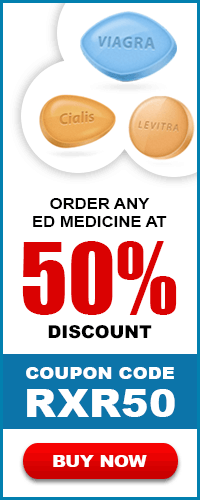Zadaxin (Thymalfasin) is the fabricated adaption of thymosin alpha 1, which is an element constructed typically in circulation and composed in body’s thymus gland. The drug stimulates the immune system to fight against more infectious diseases and cancers. It is this capability to perform as an immunomodulation which makes this drug to be more promising medication for such a wide and versatile variety of clinical conditions. The drug is successfully approved in over 30 countries worldwide for many different clinical indications. It may be used for treating hepatitis B (HBV), hepatitis C (HCV) and certain cancers, and as a vaccine adjuvant. This drug has a very good safety record hence, could be consumed more safely with maximum relief out of the drug.
Based on post-marketing treatment experience of more than 300,000 patients, the drug has been well accepted and has not been noticed with any such significant deadly or serious side effects. The drug has been successfully administered without negative circumstances to elderly subjects which is approx. up to 101 years old, children approx. as young as 13 months, and immunocompromised patients. Thus, while getting treated with this drug is one of only a few immunomodulators which is been approved and found safe for human consumption/administration. The drug does not appear to breed any of the side effects and toxicities which are commonly associated with agents in this class such as interferon and interleukin-2. Additionally, no particular harm or worsening of side effects has been noted when the drug is combined with other agents such as interferon and chemotherapy. As per the animal studies, Zadaxin (Thymalfasin) has been administered in doses as high as 800 times the recommended human dose with no ultimate proof of any kind of adverse clinical signs.
Drug Description:
Zadaxin (Thymalfasin) alpha 1 (Thymalfasin) for subcutaneous which refers to be placed below the skin, injection is a purified sterile lyophilized construction of synthetic synthesized alpha 1 is highly identical to human chemical. Thymosin alpha 1 is an acetylated polypeptide with following sequence: Ac-Ser-Asp-Ala-Ala-Val-Asp-Thr-Ser-Ser-Glu-Ile-Thr-Thr-Lys-Asp-Leu-Lys-Glu-Lys-Lys-Glu-Val-Val-Glu-Glu-Ala-Glu-Asn-OH with a molecular weight of 3,108 daltons. The lyophilized (a substance under vacuum conditions) construction encompasses 1.6 mg thymosin alpha 1, 50 mg mannitol, and sodium phosphate cushion to accustom pH to 6.8.
Drug Supplied:
Zadaxin (Thymalfasin) is clinically supplied as solo use vials inhibiting 1.6 mg of main active ingredient alpha 1 per vial. Each carton inhibits two vials of the drug. Each carton also contains two ampoules of diluent for the drug, each containing 1.0 ml of Sterile Water for Injection, which are to be used for reconstituting the solution.
Dosage:
Zadaxin (Thymalfasin) is to be used mainly for subcutaneous(beneath the skin) injection and should not be administered intravenously only. It should be restricted or diluted with 1.0 ml of the diluent provided, which consists of 1.0 ml Sterile Water for Injection, immediately before for administration. At the discretion of the physician, the patient may be instructed to self-supervise the medication.
For treating Cancer: The recommended dose for cancer suffering patients is 1.6 mg (900 µg/m2) administered subcutaneous(beneath the skin) using various schedules for 6 months or administered between chemotherapy cycles for the duration of treatment.
Over Dosage:
There are no reported instances of deliberate or accidental over dosage in humans. Animal toxicology studies have been noticed that it has shown no adverse reactions in single doses up to 20 mg/kg and in repeated doses up to 6 mg/kg/day for 13 weeks consecutively, which were maximum dose studied. The maximum single dose tested in animals performs 800-times the clinical dose. Human studies have resulted none adverse reactions at doses up to 16 mg for approx. 4 weeks.
Contradictions:
The drug is contraindicated in patients with a history of hypersensitivity to the main active ingredient or any component of the injection. Because this medication tends to work by improving the immune system, it should be considered contraindicated in patients who are being consciously immunosuppressed. The drug does it with organ transplant patients, unless the probable assistance of the therapy clearly outweighs the potential risks.
Storage:
Zadaxin (Thymalfasin) is highly recommended to be stored between 2° and 8° C (36° to 46° F). Reconstituted drug is recommended to be administered immediately.
Side Effects:
Zadaxin (Thymalfasin) is highly tolerated drug. In the clinical practice including over 2000 individuals with various diseases dispersed over all age groups, no clinically approved adverse reactions is observed post administration of the drug.
|
|
DISEASE |
ADVERSE EVENT RATE |
|
Viral Infection |
Chronic hepatitis B Chronic hepatitis C Human immunodeficiency |
< 1% drug related adverse events for all indications |
|
Cancer |
Non-small cell lung cancer Melanoma |
|
|
Vaccine adjuvant |
Hepatitis B vaccine Influenza vaccine |
|
|
Immune disorders |
Autoimmune liver disease Primary immune deficiency |
Drug Interactions and Incompatibilities:
Interactions between this drug and other drugs have not been completely evaluated. A special care should be performed while administrating this drug therapy in combination with other immunomodulation of drugs. This combination should be strictly not mixed with any other drug for safety purposes.
Precautions:
- Carcinogenesis, Mutagenesis, Impairment of Fertility: Long term studies with the main parent ingredient have not been performed to determine carcinogenicity. Mutagenicity (being able to induce genetic mutation) experimentations with the active component in the drug shows no adverse findings.
- Nursing Mothers: It is not known whether this drug is secreted in human milk. As many drugs are excreted in human milk, proper care and caution is advisable while consuming this drug by a nursing woman.
Pediatric Use: Safety and effectiveness have not been established in patients below the age of 18 years.






